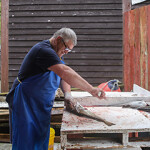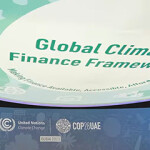Updates coming to new GSA program, including on social standards and capture processing

From labor standards on-board fishing vessels to food safety in processing plants, the Global Aquaculture Association’s new Global Seafood Assurances (GSA) standard is seeking to create an all-encompassing group of certifications addressing every major aspect of sustainability in the seafood industry.
Launched a year ago at the 2018 Seafood Expo Global, GSA is an independent, non-for-profit managing programs and certifications covering environmental responsibility, social responsibility, food safety, and animal welfare for both farmed and wild-caught seafood.
In a panel presentation titled, “Beyond 2020: A New World of Assurances,” the GAA offered an update on its many initiatives, including the development of new standards for wild-catch seafood processing facilities and the revision of the Seafish Responsible Fishing Scheme, which has been absorbed by GSA.
The primary goal of GSA is to create a comprehensive certification scheme that addresses existing gaps in the seafood certifications universe, according to GSA Executive Director Andrew Mallison.
“The bottom line is these efforts will allow people to buy seafood with confidence,” he said. “We want seafood companies to be able to sell more seafood. We want to promote consumption of seafood over terrestrial proteins. To do so, we need to give the market greater assurances, and we plan to do that by joining up the capture fisheries sector in the way we’ve done for aquaculture.”
GSA, through its affiliation with GAA, already has a robust assurance program for aquaculture farming and processing in the Best Aquaculture Practices (BAP) program. Over the past year, the organization has worked to expand that model into capture fisheries processing, according to GSA European Director Melanie Siggs.
“There are very rigorous and credible certification schemes [governing] environmental management of fisheries and aquaculture, and then we have quite a big jump in supply chain assurance in regard to processing that seafood. So we’re specifically looking at processing plant standards, which are now quite generic, and working to create a chain of custody process that specifically addresses issues most pertinent to the seafood industry,” she said.
GSA will also soon roll out the second version of the Seafish RFS, which covers the safety and legality of vessel operations, as well as social and labor issues. Siggs said social issues have become a high priority for the seafood industry, and that the RFS is an important tool in giving companies a set of standards to work from in developing their policies and procedures for at-sea operations.
“We are breaking down what those gaps look like, listening to the noise bubbling up around the most pressing issues facing the industry, and hopefully take on a leadership role in creating standards to improve performance in those areas,” Siggs said.
In the future, GSA is also working on initiatives concerning animal welfare and mitigating climate change, as well as a leadership program called SOLI that that will focus on environmental issues, particularly climate change.





Share